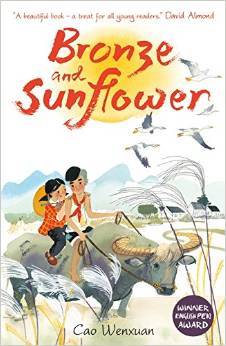 |
| Click to view on National Geographic |
(320 pages)
What a nice book this is.
It's not a novel, but instead a collection of 1,001 gentle tips for slowing down and enjoying life.
1,001 Ways to Slow Down is a gorgeous book in and of itself, a thick hard-bound square book with a luxuriously textured dust jacket. Every two-page layout of the book is bordered by a different pretty design (usually either flowers or loops), and the color of the numbers above each tip correlates with the color of the border. This creates a very nice effect, though a slightly confusing one at first: I thought there was some organizational reason for the different colored numbers, but it turned out they were just decorative.
As for the tips themselves, I thought most of them were wonderful. There were a few that didn't apply to me, about doing things with your kids or having relations with your partner, but most of them were directly applicable to my life. Flipping through them again, here are a few favorites that stick out:
Disclaimer: This is an Amazon affiliate link, and I received a complimentary copy of this novel for the purpose of participating in a TLC Book Tour.
What a nice book this is.
It's not a novel, but instead a collection of 1,001 gentle tips for slowing down and enjoying life.
1,001 Ways to Slow Down is a gorgeous book in and of itself, a thick hard-bound square book with a luxuriously textured dust jacket. Every two-page layout of the book is bordered by a different pretty design (usually either flowers or loops), and the color of the numbers above each tip correlates with the color of the border. This creates a very nice effect, though a slightly confusing one at first: I thought there was some organizational reason for the different colored numbers, but it turned out they were just decorative.
As for the tips themselves, I thought most of them were wonderful. There were a few that didn't apply to me, about doing things with your kids or having relations with your partner, but most of them were directly applicable to my life. Flipping through them again, here are a few favorites that stick out:
#405: Read long, slow, calming, class books.
#481: Ask yourself, "What bad thing will happen if I don't keep moving and doing? Can I just be for a while?"
#768: Read gravestones. Stories are there to be discovered.Scattered between the 1,001 entries are also beautifully-illustrated quotes about slowing down/finding peace, and a handful of helpful lists (foods that need to be cooked slowly, ways to spend time outside, ways to productively slow down at work, etc.). The entire vibe of the book makes me think it's geared toward millenials, with all its description of "me time," adult coloring books and yoga, but I think its messages are still good and not just catering to the hip crowd. For me, reading 1,001 Ways to Slow Down was a much-needed reminder to slow down and appreciate the present without agitating about my future. I will definitely keep my copy of the book, and will flip through it for inspiration when I start to feel overwhelmed by the stressors in my life.
Disclaimer: This is an Amazon affiliate link, and I received a complimentary copy of this novel for the purpose of participating in a TLC Book Tour.







